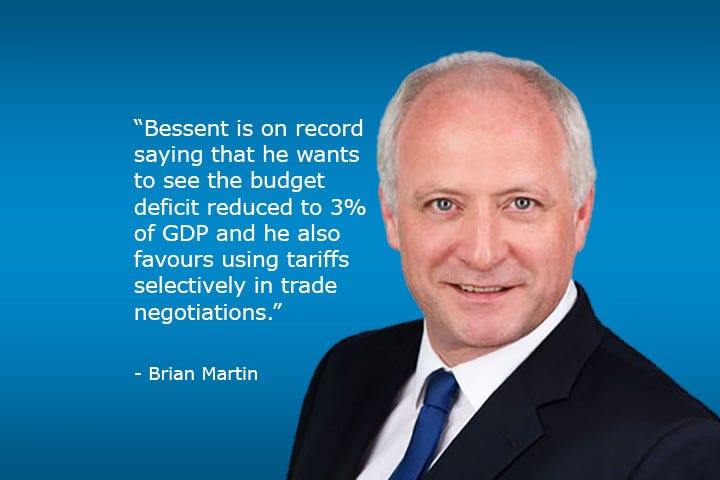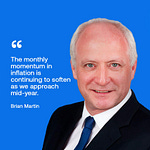US markets bounce on hedge fund manager Scott Bessent’s selection as Treasury secretary, easing deficit and tariff fears. Singapore’s inflation is dragged down by a strong currency, and a fall in New Zealand Q3 retail sales should mark the bottom of the current recession.
In our bonus deep dive interview, ANZ’s Chief Economist for Southeast Asia and India Sanjay Mathur looks at why the Phillipines’s current account deficit has risen sharply since April, and explores the wider implications.
5 things to know:
US President-elect Donald Trump’s selection of hedge fund manager Scott Bessent as Treasury secretary lifted markets overnight. ANZ Head of G3 Economics Brian Martin says Bessent is on record saying that he wants to see the budget deficit reduced, and favours using tariffs selectively in trade negotiations.
A key focus for the Kiwi dollar this week is the Reserve Bank of New Zealand’s interest rate decision and guidance on future moves in its decision on Wednesday. ANZ Head of FX Research Mahjabeen Zaman says a 50 basis point cut is already priced in to the Kiwi’s current level.
Mahjabeen says the Aussie dollar has struggled to make a convincing recovery in recent days after risk sentiment turned volatile last week. But she says there are some factors that should support the currency.
Singapore’s annual CPI inflation rate fell to 1.4% in October from 2% in September and was below expectations for around 1.8%. ANZ’s Head of Asia Research Khoon Goh says lower healthcare costs and cheaper holiday expenses due to a stronger currency contributed to the surprise.
In New Zealand, retail trade volumes fell 0.1% in the September quarter, which was a slowing of the decline seen in the June quarter of 1.2%. ANZ New Zealand Economist Henry Russell says he expects the economy to recover gradually later this year and into 2025.
Cheers
Bernard
PS: Catch you tomorrow with a look ahead to the RBNZ’s rate decision and Australian inflation data.












